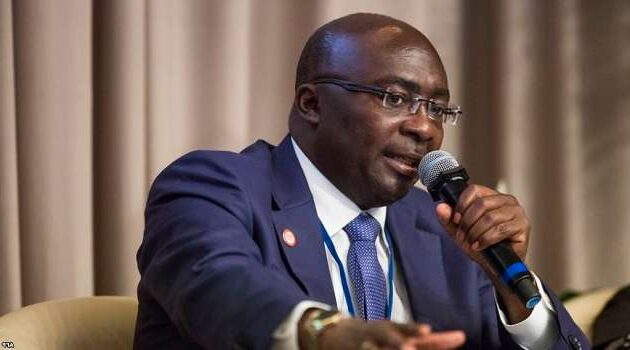‘We will now pay cash’ – Gov’t scraps criticised plan to pay depositors in bonds
Government has signalled a change in a criticised plan to pay customers of collapsed investment companies using bonds.
Instead of giving them bonds, the vice-president Dr Mahamudu Bawumia said, the government would now pay cash.
The central bank withdrew the licences of microfinance and microcredit companies over poor management.
The government provided a combination of cash and bonds totalling ¢5 billion to pay depositors of the collapsed financial institutions.
The government set up a cut-off payment. If any depositor’s money was more than the cut-off point, the rest would be paid back in bonds over five years at no interest.
But the offer irked depositors who said it would lead to an erosion of the value of their deposits.
The Chief Executive Officer of the Private Enterprise Federation, Nana Osei Bonsu, called the offer an “irresponsible deal.”
“You give them a 5-year bond of zero-coupon, what is that value of money? By the time a GHC100 is paid in 5 years, it might be 20 cents,” he reportedly said.
But the latest update from the chairperson of the government’s Economic Management Team, Dr Bawumia indicates that the Bank of Ghana (BoG) and the Ministry of Finance are working to ensure that all clients are given cash instead.
“They are going to try to pay them in cash and what we are hoping to do also is to try to restructure those bonds so that we can give them liquidity rather than the bonds,” he said in an interview on Peace FM on Tuesday, August 25.
Dr Bawumia reiterated President Akufo-Addo’s remarks in August 2020 that 98% of the affected customers have been paid 100% of their investments.
The BoG embarked on a comprehensive reform process to clean up the banking and the financial sector of the economy in 2017.
The reform exercise covered the resolution of 420 weak institutions made up of insolvent banks and Specialised Deposit-Taking Institutions (SDIs).
These included nine banks, 15 savings and loans companies, eight finance houses, 347 microfinance institutions, 39 microcredit institutions, one leasing company, and one remittance company.
“The revocation of these 420 licences was necessary to clean the financial sector and reduce contagion risks while creating an environment for stronger and well-run institutions to thrive and play their expected intermediary role of supporting the economy,” the BoG stated.
The Receiver of the collapsed microfinance companies, savings and loans, and finance houses, Mr Eric Nana Nipah, proceeding with payment options of the affected customers.
As at July 2020, he said the total value of valid claims is GH₵5.4 billion and that about 96 per cent of depositors have been paid.
However, not all the victims were enthused with the option of bonds with the preference for cash payments.
The conversion is aimed at addressing all those concerning with government giving itself by the end of 2020 to complete the payments.




Who will believe this long tongue man.?
Who is paying the money n where should I go to for my money.